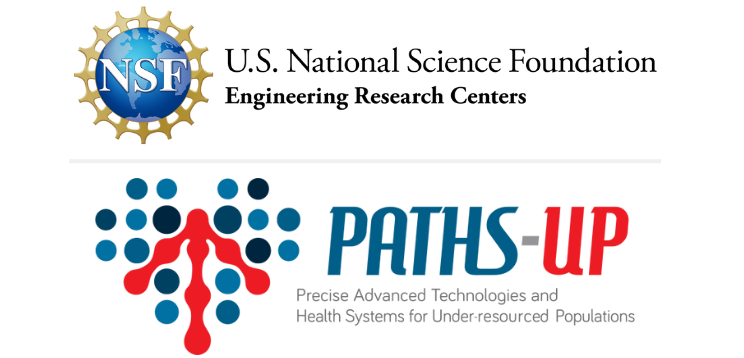The U.S. National Science Foundation Engineering Research Center (NSF ERC) program funded the Precise Advanced Technologies and Health Systems for Under-resourced Populations (PATHS-UP) in 2017. The goal of all NSF ERC programs is to integrate engineering research and education with technological innovation to transform national prosperity, health, and security.
The specific vision of our PATHS-UP ERC is to change the paradigm for health by developing revolutionary and cost-effective technologies and systems at the point-of-care. The initial PATHS-UP technologies and systems are designed to help with chronic diseases, such as diabetes and cardiovascular disease, which are leading causes of morbidity and mortality world-wide. Chronic diseases are particularly devastating in medically under-resourced communities in the United States where they are contracted at a higher rate than the national average. In these communities, chronic diseases are increasingly a major cause of disability, even for younger people, and lead to poor quality of life and high health care expenditures. Thus, the burden of chronic disease is a grand challenge that requires cost-effective technologies to reduce mortality rates, emergency room visits and hospitalizations, which disproportionately drive-up healthcare costs. Technologies are also needed to help prevent or delay disease, reducing the incidence of secondary complications and enhancing life quality.
Thus, to accomplish our vision, the PATHS-UP mission is
1) to engineer transformative, robust, and affordable, technologies and systems to improve healthcare access, enhance the quality of service and life, and reduce the cost of healthcare, particularly in medically under-resourced populations.
2) to recruit and educate scientists and engineers who are ready to lead the future in developing enabling technologies to improve health in medically under-resourced communities.
Our PATHS-UP ERC team is led by Texas A&M University, with partners from the University of California at Los Angeles, Rice University, and Florida International University.
